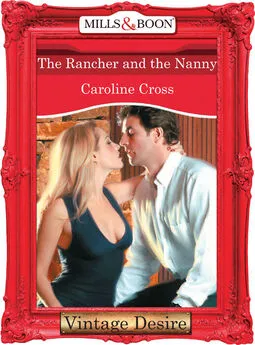John Creasey - The Toff And The Curate
- Название:The Toff And The Curate
- Автор:
- Жанр:
- Издательство:неизвестно
- Год:неизвестен
- ISBN:нет данных
- Рейтинг:
- Избранное:Добавить в избранное
-
Отзывы:
-
Ваша оценка:
John Creasey - The Toff And The Curate краткое содержание
The Toff And The Curate - читать онлайн бесплатно полную версию (весь текст целиком)
Интервал:
Закладка:
Kemp slid from the table and held out his hand.
“I will, Billy. It isn’t easy to say thanks.” His one open eye was smiling and he seemed to have become much more mature in the past few hours. “I’m afraid I owe you an apology. I once thought you knew something about the damage to the hall. I’m sorry.”
“Don’t menchon it,” said Billy, bluffly. “Only my little joke, I—” he caught Rollison’s eye and went on hastily: “I just fought I’d pull your leg, that was all. Never guessed you packed a punch like that. All okey-doke, then?”
“All okey-doke,” affirmed Kemp.
“Gawd save the King!” gasped the bald-headed man. “Who’d ‘a believed it?”
* * *
Rollison left the big hall just after eleven o’clock. It was not quite dark. Two of Ebbutt’s men were standing outside, taking no chances. Kemp had been put to bed with a cold compress over a swollen eye. He had said nothing about Rollison’s part in fixing the contest but obviously he knew.
Rollison smiled, as he remembered the curate’s last words. “I suppose you are going to do something about Joe Craik, Rolly—or is this reputation of yours just wool over the eyes?”
“I’ll try to see him tonight,” Rollison had promised.
He was not followed from the hall but was wary as he walked to the main road and then to the headquarters of AZ Division. He had telephoned the flat but Jolly had not returned and his curiosity about his man’s activities was at fever heat. He showed no sign of that when, at half-past eleven, he was ushered in to Chumley’s office. The Inspector looked relieved to see him.
“I was afraid you were going to play one of your tricks, Rollison. Sit down—and have a cigarette? If you’d like a drink—”
“No thanks,” said Rollison. “Tricks?” He looked aggrieved. “Now would I ever try to put anything across a policeman?”
Chumley chuckled.
“As a matter of fact, I think you would! What do you know about O’Hara’s murder?”
“I thought you were sure it was Craik,” said Rollison.
“We thought we had him, all right,” said Chumley, looking owlish, “but I’m afraid we made a mistake, Rollison. He’s been released.”
CHAPTER NINE
THE RELEASE OF JOE CRAIK
“Why did you let him go?” asked Rollison.
“Lack of evidence,” said Chumley.
“I thought his knife was used.”
“It was—but it had been stolen. We caught the man who stole it,” Chumley added. “We heard a whisper and went to see him. He denied it but broke down under questioning. He told us that you had been talking to him— in fact, even allowing for exaggeration, what he said you said is enough to make us reprimand you!”
Rollison sat on the corner of the inspector’s desk and lit a cigarette.
“Spike Adams or Harris?” he asked.
“Harris.”
“And he admits having picked Craik’s pocket?”
“Yes.”
“Well, well! He wasn’t at the scene of the murder, was he?”
“No,” said Chumley, regretfully. “We can’t get him for that. He tells a fantastic story of being told that someone else owned the knife, which Craik had stolen—I don’t believe a word of it but I’ve got to believe the confession and, without evidence that Craik used the knife,
“I’ve got nothing on which to hold him.”
Rollison smiled drily.
“Now what’s amusing you?” asked Chumley.
“A nice piece of fandoogling,” said Rollison. “I wondered why you were so careful to let Bray of the Yard detain him and only finish off yourself. You didn’t want to come a cropper, did you? The Yard did the dirty work, you handed Craik over to them.”
Chumley grinned, smugly.
“You weren’t satisfied that it was Craik even then?” asked Rollison.
“I was not.” Chumley was surprisingly emphatic. “I think I know this Division. I’ve been here for fifteen years and Joe Craik is one of the reliables. He might have punched O’Hara’s head but he wouldn’t use a knife. Young Bray was cocky, so I let him have his head. I thought it might give me a chance to do some quick uncovering but I’ve drawn a blank.”
“Except that you’ve been tipped off about the knife,” said Rollison. “Who told you?”
“A man who gave his name as Keller,” said Chumley and sat back, as if prepared to gloat over his sensation.
Rollison could not wholly hide his surprise.
“So you think Keller’s behind it, do you,” said Chumley.
Rollison said nothing.
“Don’t be afraid to speak up,” urged Chumley. “Rollison, I’ve not been asleep for llie last six months. I’ve never talked to Keller, in fact I’ve only once set eyes on him, hut I’ve had reports about him. There are times when we have to turn a blind eye down here. Keller’s associates have the reputation of having committed several ugly crimes but we’ve never been able to prove they were Keller’s men or that Keller knew anything about the crimes. It’s a remarkable fact that in every case the victims have been—”
“Bad men,” said Rollison, unexpectedly. “Swine.”
“What’s that?”
“I’m just quoting,” said Rollison, crossing to an easy chair. He sat on the arm. “There’s no evidence against Keller, and the crimes which rumour accredit to him have been—” he shrugged his shoulders, “—justifiable. Is that your opinion?”
“No, of course not! But they have been a kind of rough justice. You know something about that kind of thing, don’t you?”
“It has been said,” murmured Rollison. “You seem to be happy about it all, so why ask me to come here?”
“Why are you interested in the murder of O’Hara?” asked Chumley.
“I’m not,” answered Rollison. “I’m interested in the affairs of the new Curate at St Guy’s.”
Chumley rubbed his fleshy chin.
“You’re not seriously asking me to believe that?”
“It’s the truth,” Rollison assured him. “It might lead to other things, of course. For instance, why was Craik’s knife stolen? Was it to cast suspicion on Craik and even provide evidence against him? If so, why?”
“I can’t see any other explanation,” admitted Chumley, worriedly, “although why anyone should want Craik framed for a murder beats me. Rollison, you’ve been very active in the past twenty-four hours—surely you know something?”
“I’m a victim of mis-statements,” Rollison declared. “Or if you prefer it, I’ve been selected as a gullible stooge to help someone create the wrong impression. Did Harris tell you who paid him to take Craik’s knife?”
“He said it was Keller,” said Chumley, “and then he described Keller as a stocky man with big brown eyes. Possibly someone has been passing himself off as Keller who, I’m told, is a little man, and—great Scott!” exclaimed Chumley. “A stocky man with brown eyes! That fellow who spoke to you at the stadium answers the description—did you think he was Keller?”
“He told me he was,” said Rollison.
Chumley stared; and then he began to smile.
“And you believed him—I don’t think. That isn’t Keller! He might be the man who has been arranging these attacks, including the wrecking of the mission hall, but he certainly isn’t Kellef! I wonder why he wants to make out that he is?”
“To establish Keller as a crook, perhaps,” said Rollison. “In exactly the same way as he tried to frame Craik. Is that what you think?”
“It seems likely,” conceded Chumley. “Why didn’t you tell me about the mission hall trouble?”
“Not your battle, yet,” said Rollison. “It’s Kemp’s. But it will probably become yours. Now—to save you from asking why I arranged for Ebbutt to protect the Whiting family—I thought it would help you out as you’re short-staffed! The man who called himself Keller uttered violent threats against the Whitings, to stop Whiting from talking about the stolen knife. As the real Keller appears to have blown the gaff I doubt if the Whitings are in any danger, so that had better remain one of the things at which you wink a practised eye. Have you anyone in mind for the O’Hara murder?”
“Not yet,” said Chumley.
“Do you know why he was killed?”
“Not yet.”
“Do you know anything about him?”
“Not much,” said Chumley. “He was an Irishman from Eire, one of the many dock-workers who came over from there. There’s a sizeable colony of them in Whitechapel. O’Hara was not a leading spirit, in fact rather more timid than most. He’d been in this country about six months. Nothing was known against him and there’s nothing at his lodgings to suggest a motive. If I didn’t know the cause of the quarrel, I’d say he’d been killed in a drunken brawl.”
“Now you know he was killed so that Craik could be framed,” said Rollison, crisply. “Or don’t you look on it that way?”
“I am inclined to,” said Chumley. “Is that your considered opinion?”
“It’s a considered possibility,” said Rollison. “I wouldn’t put it any higher. You’ll follow up the two lines, I suppose—why frame Craik or, if that were incidental, why kill O’Hara?”
“Naturally,” said Chumley. “This brown-eyed man—do you know anything against him?”
“Nothing very much,” said Rollison. “Uttering threats might do as a charge but—you don’t like making arrests when the accused has to be released for lack of evidence, do you?”
Chumley chuckled. “You won’t forget that for a long time!”
“I shall mark it up against you,” declared Rollison. “You’re slyer than I knew. If you should happen to find out the real name of the brown-eyed gentleman, and cared to tell me, I’d be grateful.”
“I will, provided you undertake to advise me if he does anything which is indictable.”
“I always report indictable offences,” said Rollison, reprovingly. “The days when I carried out trial and sentence myself are gone—and they existed mostly in your imagination!”
He stood up and Chumley did not press him to stay. Rollison was smiling broadly as he reached the street. Three quarters of an hour later, he let himself into his flat and the first thing he saw was a light under the kitchen door. He opened it and made Jolly start.
Jolly wore a white apron over his best clothes and was operating with a yellow powder which Rollison suspected had something to do with eggs. He also had a frying pan on the electric stove, from which came a smell of sizzling fat.
“What it is to have an instinct!” approved Rollison. “I only had a bun and a piece of cheese for dinner. Good evening, Jolly. Aren’t you tired after your day’s journeying?”
“Not exceptionally so, sir, and as you have not had dinner, I will reconstitute a little more egg and make two omelettes. Good evening, sir.”
“While reconstituting, you might also reconstruct,” said Rollison. “Let’s have the diary of a day in the life of one, Jolly.”
“I am afraid I have had a disappointing time, sir,” said Jolly, mixing powder and water industriously. “At one time I hoped that I would have information of first importance but I was disappointed. You will remember that when I telephoned you, I left somewhat hurriedly?”
“Yes,” said Rollison.
“I saw a man whom I had been following all day,” said Jolly. “He had gone into an inn and I thought he would stay there for a while but he came out and hurried to a bus and I thought it better to continue to follow him.”
“Who was he?” asked Rollison.
Читать дальшеИнтервал:
Закладка:










